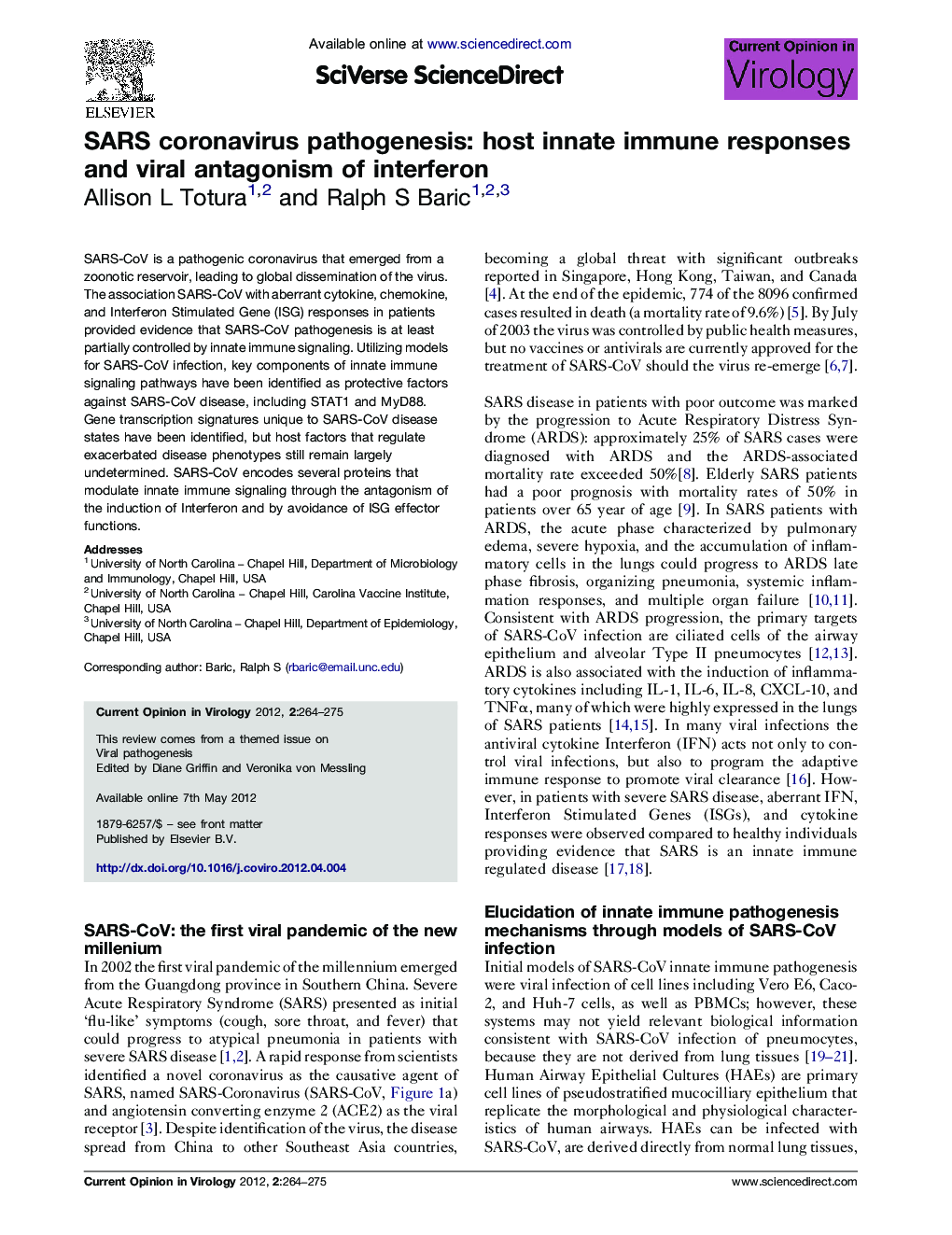| Article ID | Journal | Published Year | Pages | File Type |
|---|---|---|---|---|
| 5806961 | Current Opinion in Virology | 2012 | 12 Pages |
SARS-CoV is a pathogenic coronavirus that emerged from a zoonotic reservoir, leading to global dissemination of the virus. The association SARS-CoV with aberrant cytokine, chemokine, and Interferon Stimulated Gene (ISG) responses in patients provided evidence that SARS-CoV pathogenesis is at least partially controlled by innate immune signaling. Utilizing models for SARS-CoV infection, key components of innate immune signaling pathways have been identified as protective factors against SARS-CoV disease, including STAT1 and MyD88. Gene transcription signatures unique to SARS-CoV disease states have been identified, but host factors that regulate exacerbated disease phenotypes still remain largely undetermined. SARS-CoV encodes several proteins that modulate innate immune signaling through the antagonism of the induction of Interferon and by avoidance of ISG effector functions.
⺠Robust cell culture, mouse, and nonhuman primate models of SARS-CoV infection have been developed for the study of innate immune pathogenesis. ⺠Host mechanisms of innate immune sensing of SARS-CoV are unknown, but there is evidence for the involvement of RLRs and TLRs. ⺠Aberrant proinflammatory cytokine and Interferon Stimulated Gene responses are associated with phenotypes of severe SARS-CoV disease. ⺠SARS-CoV proteins that modulate innate immune responses antagonize the Interferon response and avoid detection by host sensing mechanisms.
